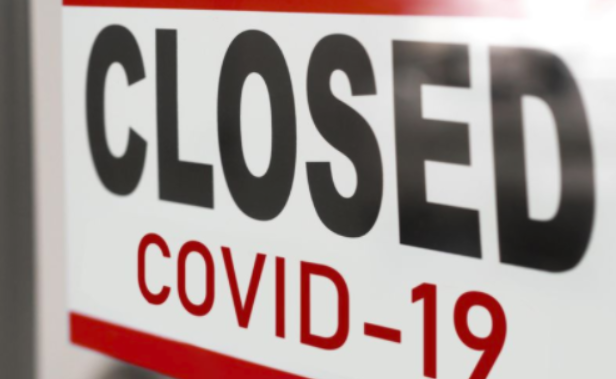Ministers are only just waking up to the Covid hangover

The phantom recession is about to get real
Panic might be too strong a word but the urgency with which ministers and business leaders have called this week for people to return to working in offices and city centres suggests that they’re seriously concerned, and rightly so.
Economies are ecosystems and Covid-19 has trampled through Britain’s like a bulldozer through a meadow. A study for Sky News last week found that in early August, worker footfall in cities was just one-sixth what it was before the lockdown in March. Even if some of that is a seasonal effect, the contrast can only be devastating for the businesses that rely on those workers as customers. Nor is it just office workers: retail was already struggling from the online competition before Covid-19 and those customers are returning only slowly.
The threat of city centre ghost towns is both very real and imminent. If Christmas does not happen this year for them, that whole part of the economy could quite literally shut up shop – and if that support network and potentially a fair chunk of retail goes, then the problem becomes circular as the attraction for office-based employees to return drops.
One sector particularly affected is public transport, now all-but renationalised. If commuters and shoppers don’t return then the lifeblood of the bus and rail systems has gone with them. Even with ticket prices as they are, and passenger numbers at record levels, the railways were still subsidised by the government by around £5bn a year, while bus numbers had been falling anyway. Without commuters paying peak fares – particularly into London – then it’s hard to see how the sector could survive without serious cuts, given that significantly increased subsidies are likely to be off the table for a government that will need to rein in its budget deficit.
Central to both the looming city centre crisis and budget deficit problem is the government’s furlough scheme. This has been widely, and rightly, praised in reducing disruption to companies and protecting jobs. It has, however, cost tens of billions of pounds and paying to keep people allocated to zombie jobs cannot be the best use of taxpayers’ money if the need for those jobs has gone and will not return. That’s a big ‘if’: one that still contains a lot of uncertainty and is likely to still do so in two months’ time when the scheme ends. Even so, you have to wonder how many jobs (outside restricted sectors like theatre), that have not been done for seven months by then are likely to return at all. If the economic imperative is to restart our cities then it does make sense to end furlough in all but a few specific cases.
All this is to ignore the health angle. Whether a return to even something close to the status quo ante is viable at the same time as schools re-open and while Covid-19 case numbers are rising and test-track-and-trace is not sufficiently effective, is highly doubtful. The ‘second wave’ expectation has finally dwindled now it’s dawned at last that Covid-19 isn’t flu and isn’t seasonal but all that means is that a second major outbreak is possible any time that transmissions can’t be controlled. As many European countries which successfully tackled the Spring outbreak are now finding, keeping it contained is hard.
Still, let’s keep that to one side for now, because if there is another outbreak that just exacerbates the economic crisis. Even without one, the end of furlough is likely to mean hundreds of thousands of job losses, at least; potentially, many more.
What then for the city-centres? Boarded-up premises not only risks a cycle of decline as the newly-unappealing nature of the locations drives people away, taking more money and jobs out, but creates a property crisis as rents dive, driven by plummeting demand, and rental incomes crash with fewer businesses paying less rent. That’s a crash that could take years to work through, with investment stifled throughout.
And this leads us back to the elephant in the room. Britain has just been through its biggest recession since Britain was simply a geographic (rather than political) entity – not that you’d know it. Furlough, and government support in general, has papered over that chasm. But the chasm is there all the same and the loss of incomes it’s involved must inevitably work its way through to insolvencies and unemployment, even before we add in those firms that would have been viable were we still working as we were but aren’t now we’re not. The phantom recession must gain physical attributes sooner rather than later.
On top of which, of course, is our old friend Brexit, with the end of the transition period now only four months away and with no framework as yet set to replace it: hardly an ideal spanner to throw into already-malfunctioning works.
So no wonder the government is keen – desperate even – to restore a former normality that much of the country is now rejecting. It’s hard to believe though that even if such a restoration were desirable, it’s actually possible. While Covid-19 remains in circulation and further lockdowns are possible, or while an outbreak at an office site could result in the temporary loss of a huge proportion of staff, even companies that would in principle like to return to concentrated working are likely to play safe and delay any return to that. And other firms will continue to facilitate it because it works for them or (some of) their staff.
When change comes, it can come quickly, unexpectedly and brutally. Many businesses, especially those sustained by commuters, are finding that now. But the same applies to politics. Six months’ time has every chance of being a different world.